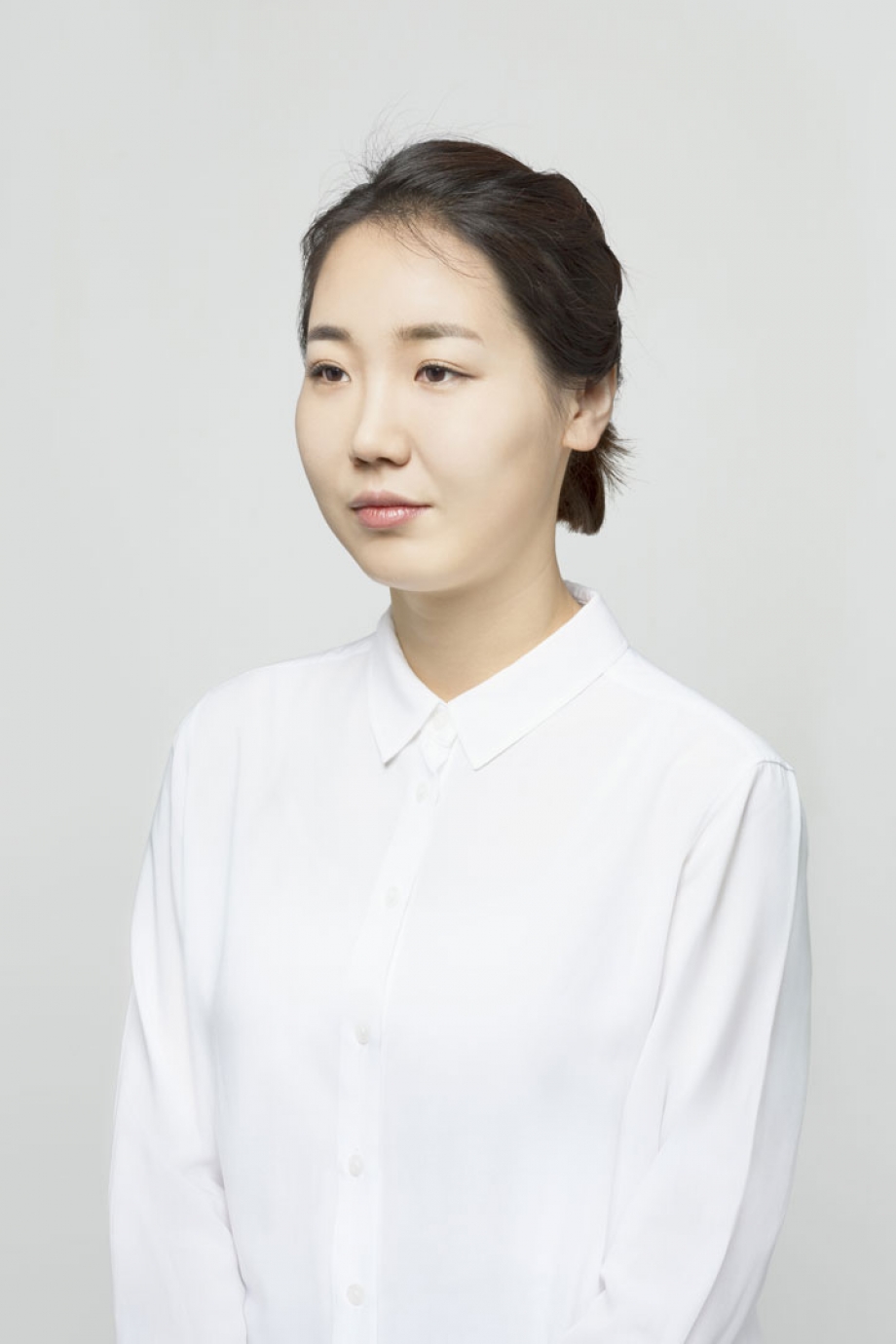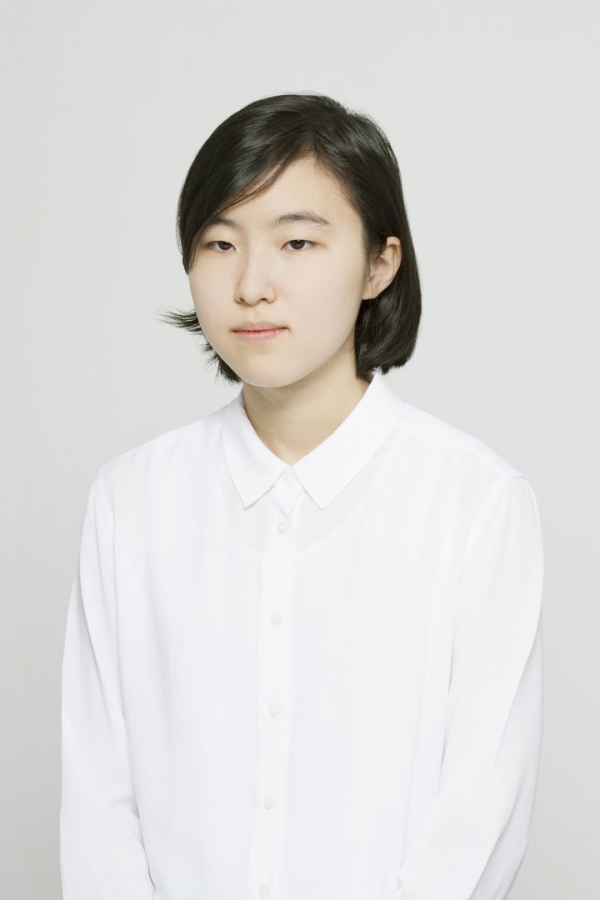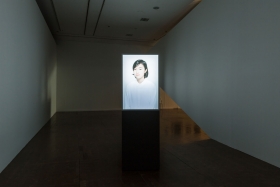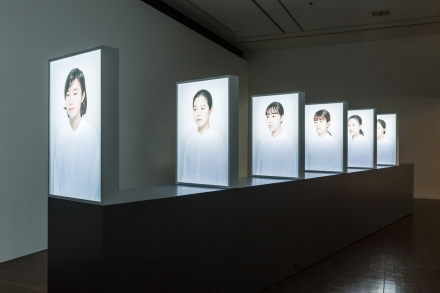Joo Hwang
Vesti La Giubba [Put on the Costume], 2016, Photography, lightbox, 190 x 65 cm (each)
, 1000The nineteenth century Italian opera style Verismo was influenced by the realism movement in literature. It is famous for the revelation of hard and destitute lives of working class people including laborers and farmers. The song Vesti la giubba [Put on the Costume], from Pagliacci written by Leoncavallo, is an aria that Canio, the head of the troupe, sings immediately after he saw his wife’s infidelity to express his grief and wrath. “[…] Put on your costume, powder your face. The people pay to be here, and they want to laugh […] Laugh, clown, at your broken love! Laugh at the grief that poisons your heart!” It has now been our reality; we, like a clown who must hide his heart and act to make people laugh, “put on the costume” of various forms of labor and control ourselves to perform emotional labor to meet the demands of consumers and capitalists. Korean society has entered into the neoliberal economy during the last decade, which has produced more income inequality and reinforced the systems of the service industry. Accordingly, people have become potential emotional laborers, surpassing labor’s original forms and functions. In ordinary work spaces, workers have become used to the emotional labor caused mostly by power relations. Emotion, no longer a personal characteristic, is a commodity. In Vesti la Giubba [Put on the Costume], female workers of diverse professions (student, convenience store cashier, offce worker, self-employed businessman, housewife, designer, and theater actress) put on a uniform of an unidentified company and perform a typical work situation—facing up to the audience/customer/capitalist as in the opera. The artist, like an opera director, but using photograph, reveals the distortion and isolation of labor that has come to the fore in the non-relationships in our current work environment.
Joo Hwang
b. 1964. Lives and works in Seoul.
Joo Hwang studied photography at School of Visual Art and Yale University. In New York, her primary subject was the objectified identity of Asian women living in the United Sates. Upon returning to Korea, she has concentrated on documenting aspects of artificially constructed natural sites and structures which evolve as an economic system mutates itself from one form to another. Her photographs reveal discord and estrangement that takes place during such process. Joo Hwang metaphorically contemplates the inherent instability of capitalism in which people, goods and labor seek one another in an endless cycle.




